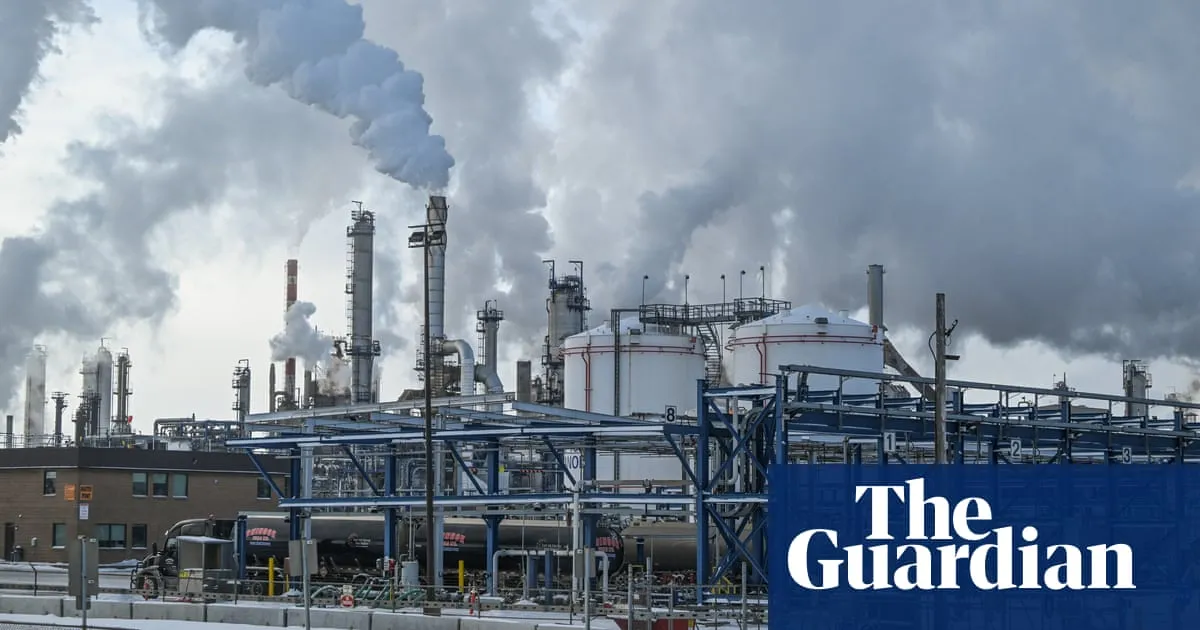
The sweeping package of tariffs unveiled by Donald Trump on Wednesday has raised eyebrows, particularly due to its exemption for the energy sector. Advocates argue that this move clearly indicates the president’s allegiance to his major oil donors rather than the interests of the American public. Trump’s implementation of a 10% universal tariff, which is even higher for several major economies, is wreaking havoc on the global economy and is anticipated to drive up consumer prices in the United States.
Notably, the new tariffs will not be applied to many fossil fuel products, including liquefied natural gas imports, crude oil from Canada, and essential materials for petrochemical production. This carveout has been met with approval from oil interests. Mike Sommers, head of the American Petroleum Institute, the leading lobby group for fossil fuels in the U.S., expressed his support on social media, stating, “We welcome President Trump’s decision to exclude oil and natural gas from new tariffs, underscoring the complexity of integrated global energy markets and the importance of America’s role as a net energy exporter.”
This exemption comes after the fossil fuel industry invested a staggering $96 million into Trump’s re-election campaign and associated political action committees. This investment aligns with Trump’s promises to deregulate the energy sector and roll back environmental regulations, although it falls short of the $1 billion he previously sought from the industry during a controversial meeting at his Mar-a-Lago estate. Nonetheless, it marks a record level of financial support from oil and gas billionaires.
Environmental advocates have voiced strong criticism regarding this exemption. Stevie O’Hanlon, spokesperson for the youth-led environmental justice group Sunrise Movement, stated, “Oil and gas billionaires just bought themselves an exemption from Trump’s tariffs. While the rest of us have to deal with skyrocketing prices and rising temperatures, they’re sitting on their thrones and raking in billions. We need an end to this oligarchy now.”
In the early months of his second term, Trump has continued to fulfill his commitments to dismantle green policies, maintaining a close relationship with the oil industry. Last month, he convened a meeting with numerous oil executives at the White House, where he suggested the possibility of an energy exemption from the tariff package. Sources indicated uncertainty as to whether Trump was joking or making a serious policy statement.
This exemption is expected to provide some relief to the oil and gas sector from the market turbulence caused by the tariffs. However, it won’t completely insulate them from potential fallout. While many oil and gas products are exempt, tariffs on steel and aluminum could still escalate production costs, thereby impacting the overall fossil fuel infrastructure.
Less than 24 hours after the tariff package was announced, commodity markets experienced a significant downturn, with oil prices plunging into negative territory due to diminished fuel demand often linked to slowed global economic growth. Economist Claudio Galimberti from Rystad Energy commented, “At this early stage, it’s difficult to fully assess the long-term impact of these tariffs on the global economy, but there will undoubtedly be immediate and severe consequences.”
Despite Trump’s repeated promises to combat inflation and reduce costs for everyday Americans, experts warn that his new tariffs could lead to price hikes on essential goods ranging from gas and automobiles to wine and chocolate. Pete Jones, a spokesperson for the green advocacy group Climate Power, remarked, “Donald Trump isn’t just breaking his promise to lower prices for Americans. He’s making sure they pay more while his billionaire oil donors pay less.”